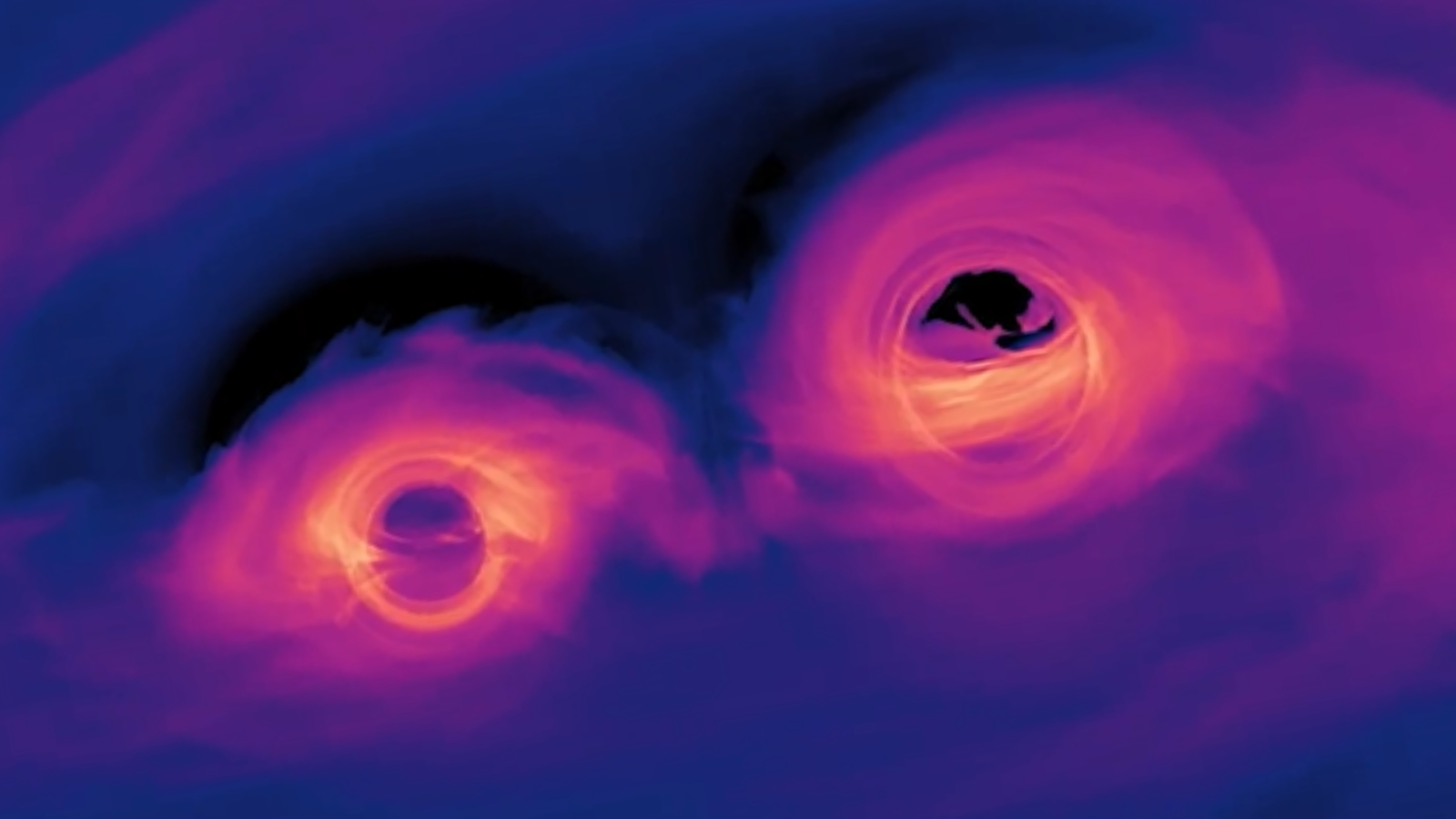Ask your James Webb Space Telescope questions on Space Chat, LIVE TODAY!
Bring your questions for Space.com's LIVE weekly dive into the cosmos.
Breaking space news, the latest updates on rocket launches, skywatching events and more!
You are now subscribed
Your newsletter sign-up was successful
Want to add more newsletters?

Delivered daily
Daily Newsletter
Breaking space news, the latest updates on rocket launches, skywatching events and more!

Once a month
Watch This Space
Sign up to our monthly entertainment newsletter to keep up with all our coverage of the latest sci-fi and space movies, tv shows, games and books.

Once a week
Night Sky This Week
Discover this week's must-see night sky events, moon phases, and stunning astrophotos. Sign up for our skywatching newsletter and explore the universe with us!

Twice a month
Strange New Words
Space.com's Sci-Fi Reader's Club. Read a sci-fi short story every month and join a virtual community of fellow science fiction fans!
Today (Dec. 17), a special episode of Space Chat will cover all things James Webb Space Telescope!
Every Friday at 1 p.m. EDT (1800 GMT), Space.com senior writer Chelsea Gohd explores what's new in space on Space Chat. This Friday, join her for a special episode all about the James Webb Space Telescope.
You can find the show live on Space.com's Facebook page and Youtube page.
Do you have space questions you want to be answered?
Ask Gohd your questions on Facebook or Youtube and get them answered LIVE during Space Chat every week.
Related: Science & Astronomy News at Space.com
If there's something happening in space that you want to ask questions about on the next episode of Space Chat, you can post your suggestion for future episode topics to any of Space.com's social media channels.
Breaking space news, the latest updates on rocket launches, skywatching events and more!
Also, if you're looking to stay actively involved in the Space.com community, feel free to chat with other space enthusiasts over in our Space.com Forums here.
- The 12 Strangest Objects in the Universe
- From Big Bang to Present: Snapshots of Our Universe Through Time.
- The 11 Biggest Unanswered Questions About Dark Matter
Follow Chelsea Gohd on Twitter @chelsea_gohd. Follow us on Twitter @Spacedotcom and on Facebook.

Chelsea “Foxanne” Gohd joined Space.com in 2018 and is now a Senior Writer, writing about everything from climate change to planetary science and human spaceflight in both articles and on-camera in videos. With a degree in Public Health and biological sciences, Chelsea has written and worked for institutions including the American Museum of Natural History, Scientific American, Discover Magazine Blog, Astronomy Magazine and Live Science. When not writing, editing or filming something space-y, Chelsea "Foxanne" Gohd is writing music and performing as Foxanne, even launching a song to space in 2021 with Inspiration4. You can follow her on Twitter @chelsea_gohd and @foxannemusic.

